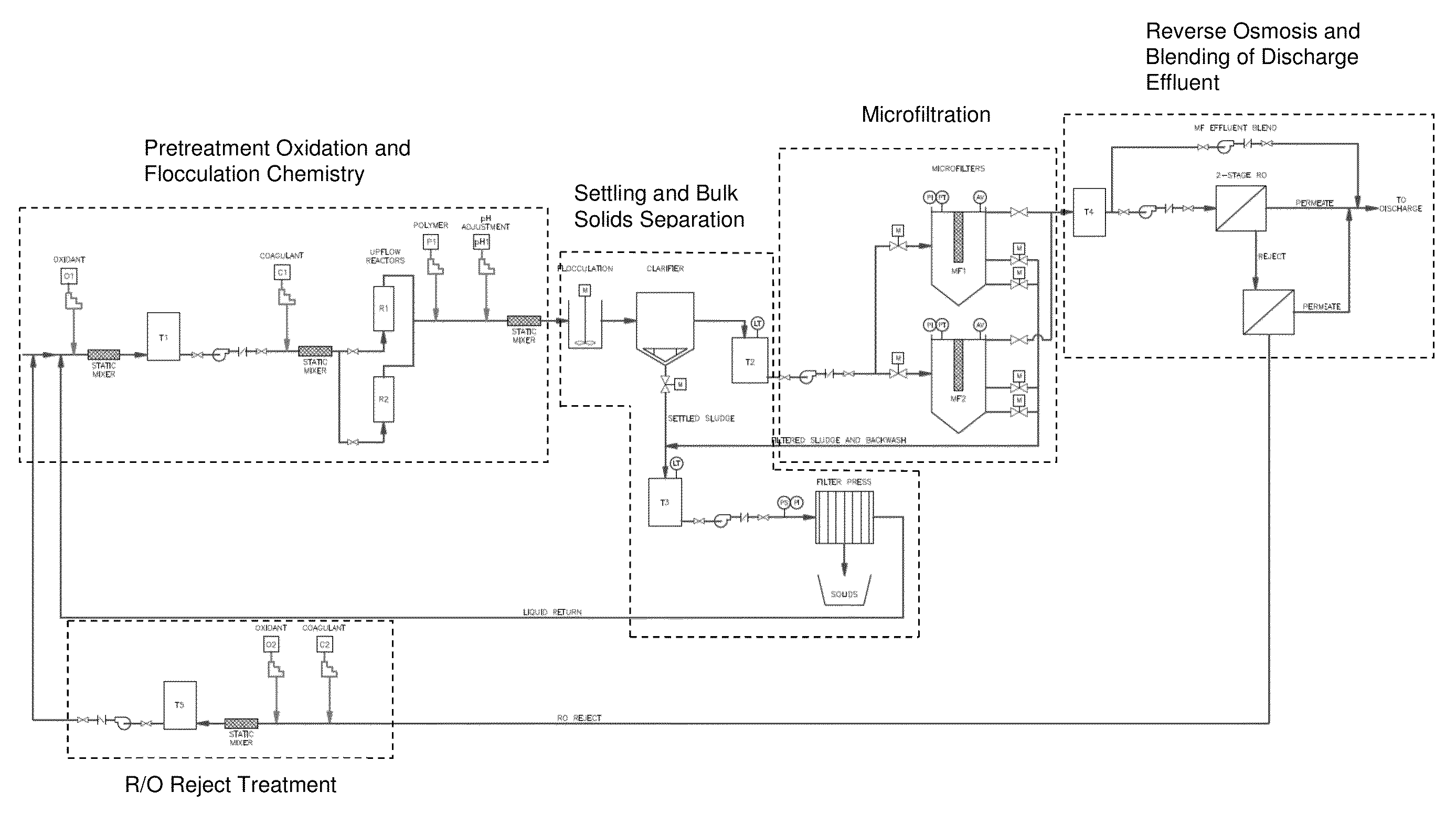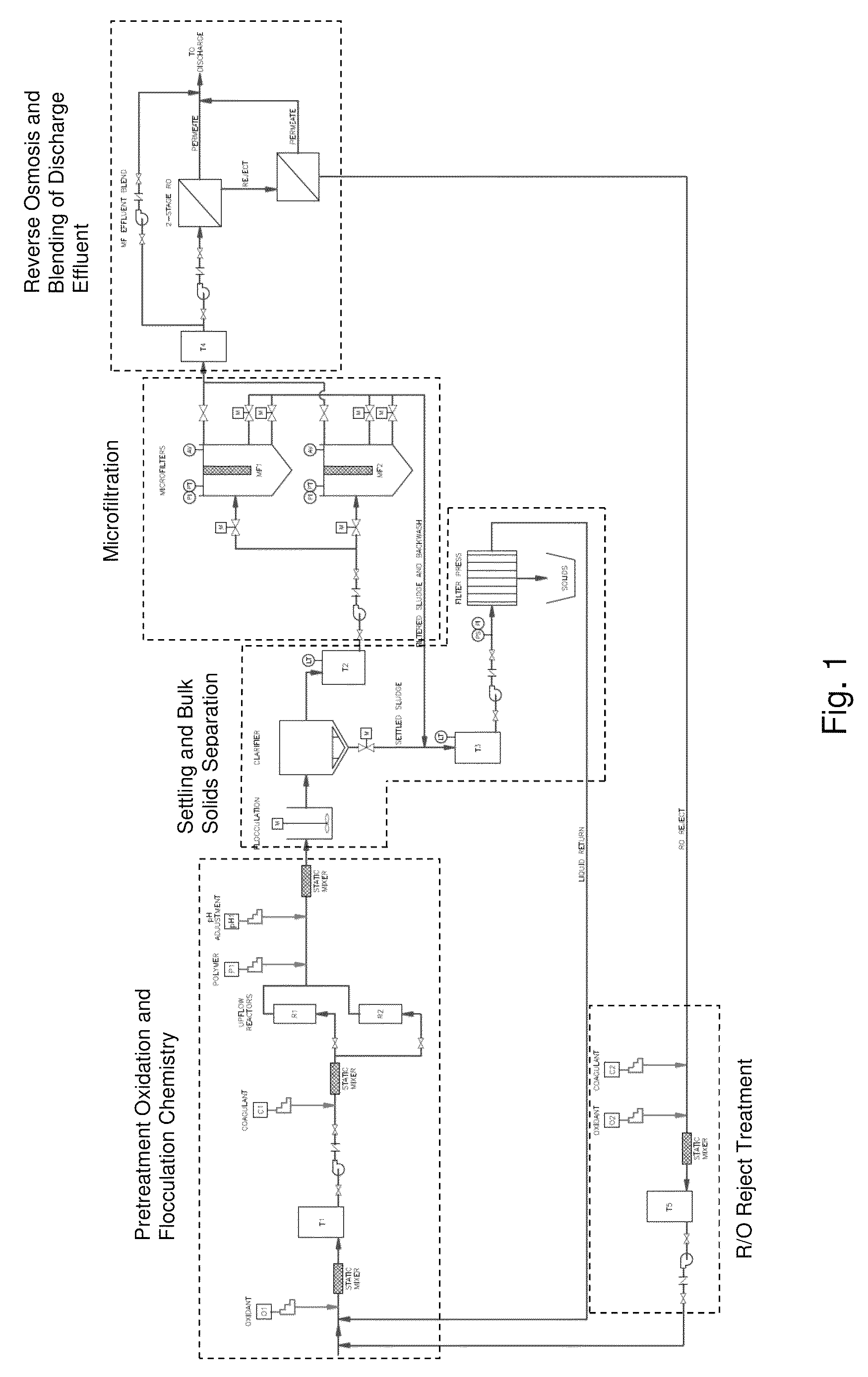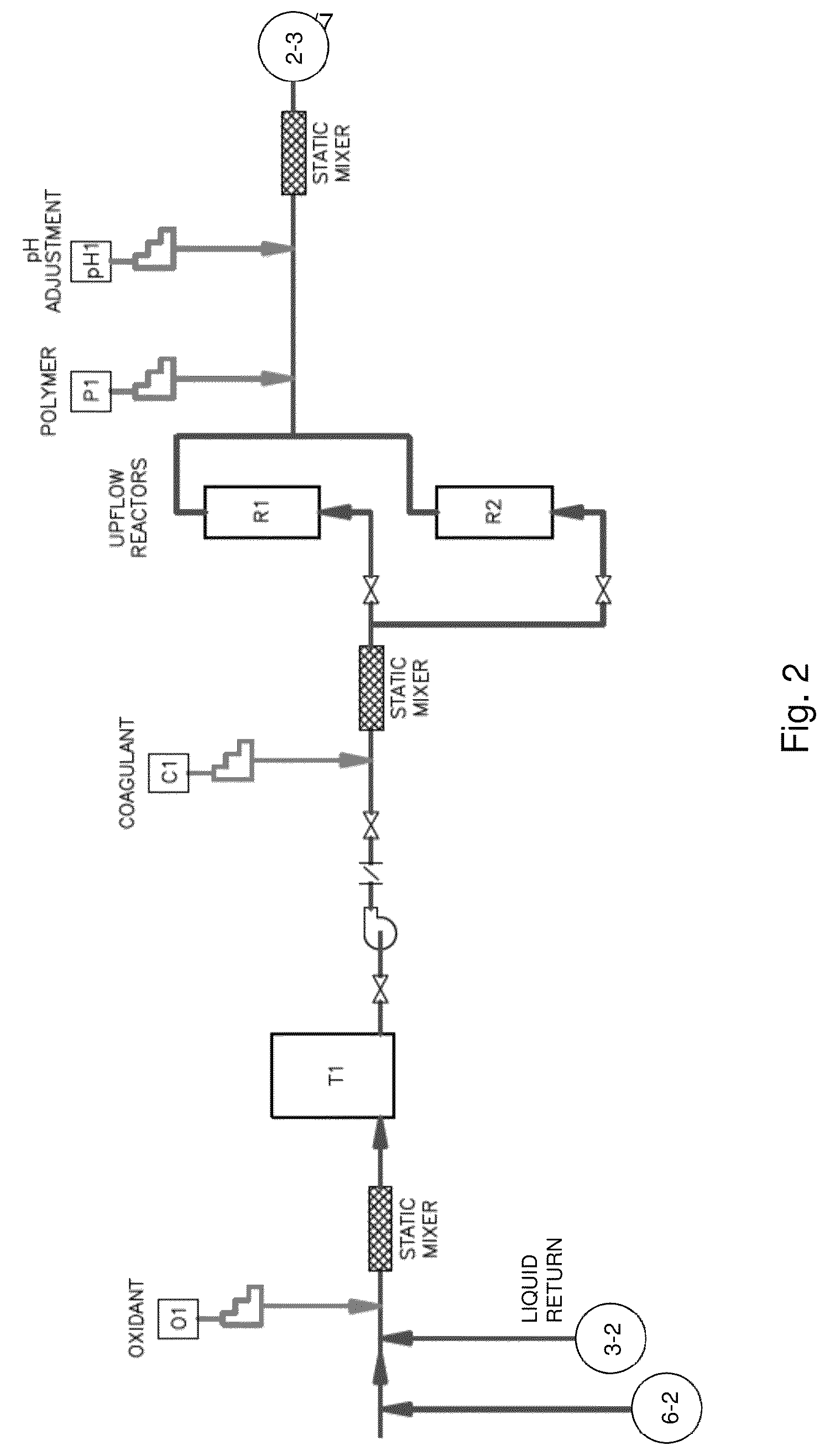Treatment of contaminated impound water
a technology of impound water and treatment method, which is applied in the nature of treatment water, multi-stage water/sewage treatment, waste water treatment from quaries, etc., can solve the problem that certain trace contaminants may remain at unacceptably high levels
- Summary
- Abstract
- Description
- Claims
- Application Information
AI Technical Summary
Benefits of technology
Problems solved by technology
Method used
Image
Examples
example 1
[0071]In one example of a method for treating contaminated impound water, a pilot scale test was performed using actual contaminated impound water from TLDD. A water sample was received from Tulare Lake Drainage District [TLDD] for analysis (pre and post), and treated in accordance with the disclosed process. The sample was treated using the advanced oxidation of catalyzed peroxide and ferrous ions. Advanced oxidation refers to processes employing ferrous compounds to catalyze oxidation of metals, ions, and organics in the waste water stream. Ferrous ions are generated in the upflow reactors (R1 and R2 shown in FIG. 2). Ferric iron is reduced from ferric to ferrous, and the iron filings or iron wool is oxidized. The ferric iron may be in the form of ferric chloride or other ferric salt. Not all of the iron is reduced from ferric to ferrous, because of the speed through which the ferric chloride, etc. passes through the upflow reactor. However, it is possible to predict an approximat...
example 2
[0079]In another example of a method for treating contaminated impound water, testing was performed using actual selenium contaminated impound water from a coal surface mining operation.
[0080]These samples were received and labeled VE-78-2011-07-SE and VE-78-2011-08-SE and were, by our analytical determined to be from the same source and / or very close or very similar waste streams, if not the same grab sample. The two were blended together [failing any additional comments / instructions to the contrary] and were tested as a composite and labeled as VE-78-2011-07-SE. All values herein are in milligrams per liter [mg / L] unless otherwise noted.
[0081]The results are disclosed in Table 2.
[0082]
TABLE 2InfluentInfluentTestVE-78-2011-07-SEVE-78-2011-08-SETreatedResidue (total5,040.04,680.05,170.0solids, TS)Total suspended9.0solids (TSS)pH1.661.668.21Aluminum (Al)0.1600.320Antimony (Sb)Arsenic (As)Barium (Ba)Beryllium (Be)Boron (B)Cadmium (Cd)Calcium (Ca)201.0199.0204.0Chromium (Cr)Cobalt (Co)...
PUM
| Property | Measurement | Unit |
|---|---|---|
| pressure | aaaaa | aaaaa |
| pore size | aaaaa | aaaaa |
| pore size | aaaaa | aaaaa |
Abstract
Description
Claims
Application Information
 Login to View More
Login to View More - R&D
- Intellectual Property
- Life Sciences
- Materials
- Tech Scout
- Unparalleled Data Quality
- Higher Quality Content
- 60% Fewer Hallucinations
Browse by: Latest US Patents, China's latest patents, Technical Efficacy Thesaurus, Application Domain, Technology Topic, Popular Technical Reports.
© 2025 PatSnap. All rights reserved.Legal|Privacy policy|Modern Slavery Act Transparency Statement|Sitemap|About US| Contact US: help@patsnap.com



